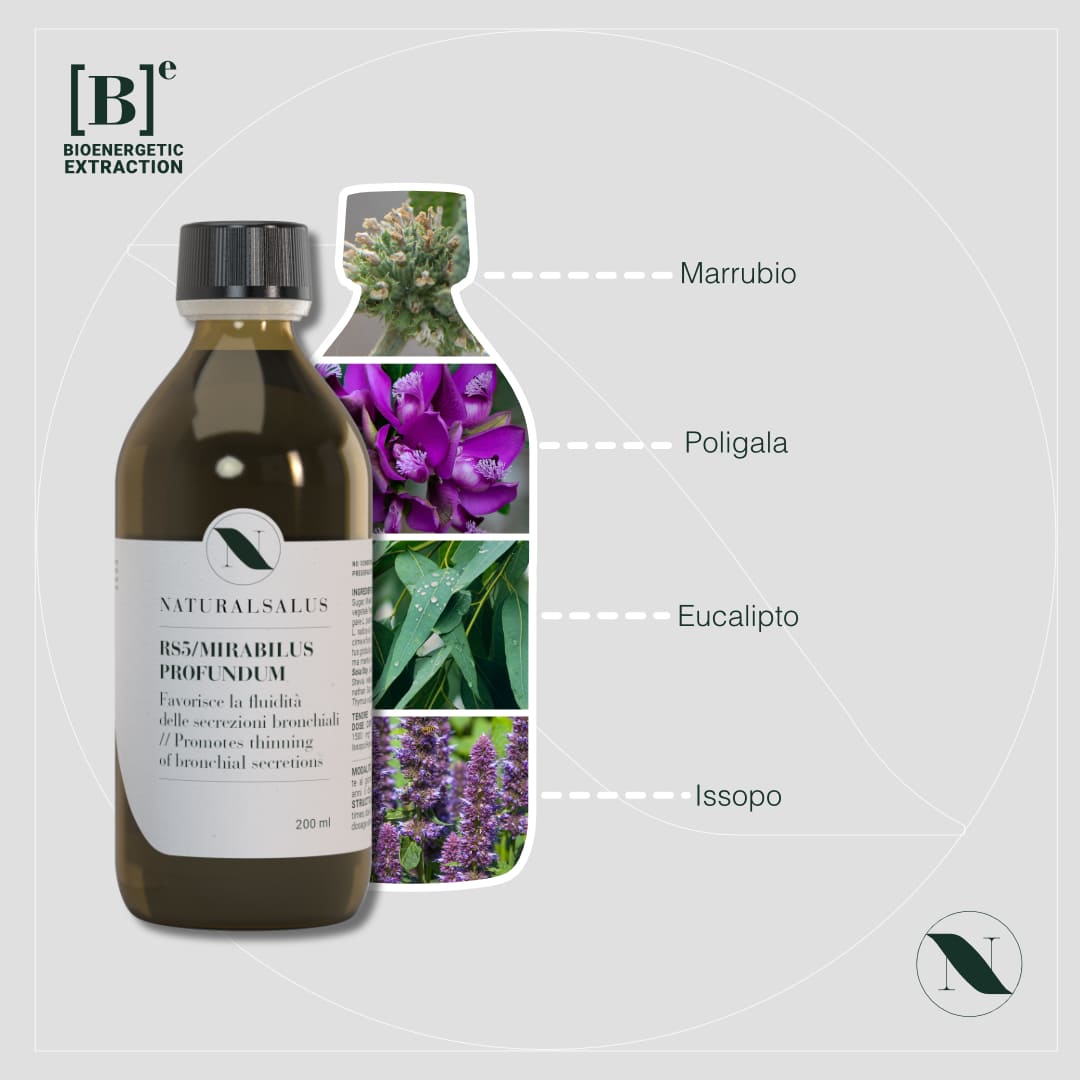

RS5/MIRABILUS® PROFUNDUM - Natural food supplement aiding phlegmy coughs and bronchitis
Encouraging the elimination of phlegm and naturally clearing the bronchi
Persistent chesty coughs, laden with mucus are often a sign of lower respiratory tract inflammation. RS5/MIRABILUS® PROFUNDUM by NATURALSALUS is an herbal food supplement specifically designed to rid phlegm from the bronchi, aiding in expectoration, and relieve acute or chronic bronchitis symptoms, even for smokers.
Thanks to the plant extracts and balsamic essential oils formulation, it acts intensely to thin out mucus, sooth bronchial irritations, and counter bacteria and viruses in the upper and lower respiratory tracts. The usage of the Bioenergetic Extraction® patent ensures maximum efficacy of the active ingredients whilst preserving their integrity.



Explore other areas of wellbeing
Discover all our other products, organised by condition, benefit, stage of life or lifestyle, and find the natural supplements that best suit your needs.



